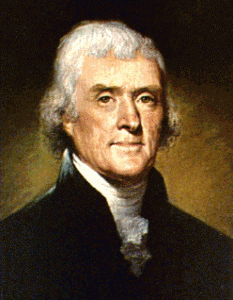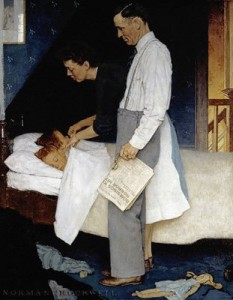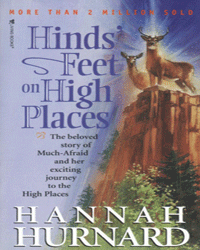Month: March 2015
Teen Interviews Dr. Ben Carson
Children are Dogs, Teenagers are Cats
“I just realized that while children are dogs—loyal and affectionate—teenagers are cats.
It’s so easy to be a dog owner. You feed it, train it, boss it around. It puts its head on your knee and gazes at you as if you were a Rembrandt painting. It bounds indoors with enthusiasm when you call it.
Then, around age 13, your adoring puppy turns into a big old cat. When you tell it to come inside, it looks amazed, as if wondering who died and made you emperor.
Instead of dogging your footsteps, it disappears. You won’t see it again until it gets hungry…then it pauses on its sprint through the kitchen long enough to turn up its nose at whatever you’re serving, swishing its tail and giving you an aggrieved look until you break out the tuna again.
When you reach out to ruffle its head in that old affectionate gesture, it twists away from you, then gives you a blank stare as if it is trying to remember where it has seen you before.
You, not realizing your dog is now a cat, think something must be desperately wrong with it. It seems so antisocial, so distant, sort of depressed. It won’t go on family outings. Since you’re the one who raised it, taught it to fetch, stay and sit on command, you assume you did something wrong. Flooded with guilt and fear, you redouble your efforts to make your pet behave.
Only now you’re dealing with a cat, so everything that worked before now has the opposite result. Call it, and it runs away. Tell it to sit, and it jumps on the counter. The more you go toward it, wringing your hands, the more it moves away.
Instead of continuing to act like a dog owner, you must learn to behave like a cat owner. Put a dish of food near the door and let it come to you. But remember that a cat needs your help and affection too. Sit still and it will come, seeking that warm, comforting lap it has not entirely forgotten. Be there to open the door for it.
One day your grown up child will walk into the kitchen, give you a big kiss and say,
“You’ve been on your feet all day. Let me get those dishes for you.” Then, you’ll realize your cat is a dog again.”
Thomas Jefferson
 Thomas Jefferson was a very remarkable man who
Thomas Jefferson was a very remarkable man who
started learning very early in life
and never stopped.
At 5, began studying under his cousin’s tutor.
At 9, studied Latin, Greek and French.
At 14, studied classical literature and additional languages.
At 16, entered the College of William and Mary.
Also could write in Greek with one hand
while writing the same in Latin with the other.
At 19, studied Law for 5 years starting under George Wythe.
At 23, started his own law practice.
At 25, was elected to the Virginia House of Burgesses.
At 31, wrote the widely circulated “Summary View
of the Rights of British America ?
And retired from his law practice.
At 32, was a Delegate to the Second Continental Congress.
At 33, wrote the Declaration of Independence.
At 33, took three years to revise Virginia ‘s legal code
and wrote a Public Education bill
and a statute for Religious Freedom.
At 36, was elected the second Governor of Virginia
succeeding Patrick Henry.
At 40, served in Congress for two years.
At 41, was the American minister to France
and negotiated commercial treaties with European nations,
along with Ben Franklin and John Adams.
At 46, served as the first Secretary of State under George Washington.
At 53, served as Vice President and was elected president
of the American Philosophical Society.
At 55, drafted the Kentucky Resolutions
and became the active head of Republican Party.
At 57, was elected the third president of the United States.
At 60, obtained the Louisiana Purchase,
doubling the nation’s size.
At 61, was elected to a second term as President.
At 65, retired to Monticello.
At 80, helped President Monroe shape the Monroe Doctrine.
At 81, almost single-handedly created the University of Virginia
and served as its first president.
At 83, died on the 50th anniversary of the Signing
of the Declaration of Independence,
along with John Adams.
Thomas Jefferson knew because he himself studied
the previous failed attempts at government.
He understood actual history,
the nature of God, His laws and the nature of man.
That happens to be way more than what most understand today.
Jefferson really knew his stuff.
A voice from the past to Lead us in the future-
John F. Kennedy held a dinner in the white House
for a group of the brightest minds
in the nation at that time. He made this statement:
“This is perhaps the assembly of the most intelligence
ever to gather at one time in the White House
with the exception of when Thomas Jefferson dined alone.”
“When we get piled upon one another in large cities, as in Europe,
we shall become as corrupt as Europe .”
— Thomas Jefferson
“The democracy will cease to exist
when you take away from those who are willing to work
and give to those who would not.”
— Thomas Jefferson
“It is incumbent on every generation
to pay its own debts as it goes.
A principle which if acted on
would save one-half the wars of the world.”
— Thomas Jefferson
“I predict future happiness for Americans
if they can prevent the government
from wasting the labors of the people
under the pretense of taking care of them.”
— Thomas Jefferson
“My reading of history convinces me that most bad government
results from too much government.”
— Thomas Jefferson
“No free man shall ever be debarred the use of arms.”
— Thomas Jefferson
“The strongest reason for the people
to retain the right to keep and bear arms
is, as a last resort, to protect themselves
against tyranny in government.”
— Thomas Jefferson
“The tree of liberty must be refreshed
from time to time with the blood
of patriots and tyrants.”
— Thomas Jefferson
“To compel a man to subsidize with his taxes
the propagation of ideas which he disbelieves
and abhors is sinful and tyrannical.”
— Thomas Jefferson
Thomas Jefferson said in 1802:
“I believe that banking institutions
are more dangerous to our liberties than standing armies.
If the American people ever allow private banks
to control the issue of their currency,
first by inflation, then by deflation,
the banks and corporations that will grow up
around the banks will deprive the people
of all property –
until their children wake-up homeless
on the continent their fathers conquered.”
Help! I’m Married to a Homeschooling Mom
Don’t Be Conned
Questions
 Would you sell your boy for a stack of gold?
Would you sell your boy for a stack of gold?
Would you miss that hand that is yours to hold?
Would you take a fortune and never see
The man, in a few brief years, he’ll be?
Suppose that his body were racked with pain,
How much would you pay for his health again?
Is there money enough in the world today
To buy your boy? Could a monarch pay
You silver and gold in so large a sum
That you’d have him blinded or stricken dumb?
How much would you take, if you had the choice,
Never to hear, in this world, his voice?
How much would you take in exchange for all
The joy that is wrapped in that youngster small?
Are there diamonds enough in the mines of earth
To equal your dreams of that youngster’s worth?
Would you give up the hours that he’s on your knee
The richest man in the world to be?
You may prate of gold, but your fortune lies,
And you know it well, in your boy’s bright eyes.
And there’s nothing that money can buy or do
That means so much as that boy to you.
Well, which does the most of your time employ,
The chase for gold — or that splendid boy?
Edgar Guest
Hinds Feet on High Places
 I first read Hannah Hurnard’s beloved allegory when I was a young idealistic girl just beginning my walk with Christ. I never forgot this book which meant so much to me back then, and wanted to read it again with my children. This moving story, has even more meaning to me now as an older Mom who has been through the measure of sorrow and suffering that is often the case as we journey through this broken world. If you have walked with sorrow and suffering you will appreciate this very enjoyable story of a girl named Much-Afraid who decides to follow the Good Shepherd leaving behind her fearing relatives and walk to the high-places to be transformed and healed spiritually and physically by the good shepherd.
I first read Hannah Hurnard’s beloved allegory when I was a young idealistic girl just beginning my walk with Christ. I never forgot this book which meant so much to me back then, and wanted to read it again with my children. This moving story, has even more meaning to me now as an older Mom who has been through the measure of sorrow and suffering that is often the case as we journey through this broken world. If you have walked with sorrow and suffering you will appreciate this very enjoyable story of a girl named Much-Afraid who decides to follow the Good Shepherd leaving behind her fearing relatives and walk to the high-places to be transformed and healed spiritually and physically by the good shepherd. 
Please plan on reading this wonderful book with your children before you are finished homeschooling them. Even though this story is so important and meaningful it is an easy read and one that does not get boring. Throughout the entire book, you will have the opportunity to discuss what the Christian faith is really all about. What does it mean to submit to God in all circumstances…what does it cost to follow the Good Shepherd? Can He really be trusted with our lives and how will it feel to follow him even when He seems distant from us? How does pride, self-pity, bitterness, and resentment get in our way and affect our journey of faith?
You will likely discover yourself in nearly every chapter of this book because each of us has a bit of Much Afraid within our hearts. Reading the allegory Hinds Feet on High Places is faith building because it exposes what is really going on in the heart of each of us. At the end of the book, when Much Afraid finally reaches the High Places she is given a new name. A wonderful new name to replace Much-Afraid. If you are curious about this new name, pick up a copy…. and be blessed as you enjoy this faith building book with your family. ~Anne


